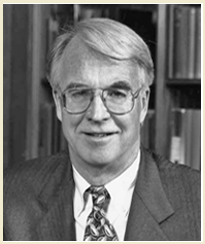 The Edward M. Gramlich Fellowship in Community and Economic Development is cosponsored by NeighborWorks America and the Joint Center for Housing Studies (JCHS) at Harvard University.
The Edward M. Gramlich Fellowship in Community and Economic Development is cosponsored by NeighborWorks America and the Joint Center for Housing Studies (JCHS) at Harvard University.
The fellowship is named for Edward “Ned” Gramlich, a former member of the board of governors of the Federal Reserve System and past chair of the Neighborhood Reinvestment Corporation (now doing business as NeighborWorks America). Gramlich was a strong and consistent advocate for consumer protection in the financial arena.
Interested in applying? Visit the JCHS website.
Program Benefits
- Practical — Fellows receive compensation of $8,000 plus travel and office expenses; 10 weeks of NeighborWorks America's office space; and the opportunity for publication in the JCHS working paper series.
- Educational — Fellows are mentored by JCHS faculty of Harvard University. They gain hands-on experience that builds a deep understanding of the benefits of connecting financial-service institutions; local, state and federal governments; and community residents.
- Professional — Through their research, the Gramlich fellows develop relationships with some of the top practitioners and policy makers in community development. Fellows also have an opportunity to attend a weeklong NeighborWorks Training Institute. Our institutes are premier training events for community-based development, drawing approximately 2,000 professionals to every event. Fellows are given the opportunity to present their research at the conference and at a policy briefing in Washington, D.C.
Gramlich Fellows Research
2022 Fellows
Arielle Rawlings’s research draws from the experience of post-pandemic neighborhood change to provide housing and community development practitioners with a framework to illuminate the specific needs of middle neighborhoods, understand the community development programs that can serve these needs, and leverage the lessons learned from the robust work being done by NeighborWorks organizations.
Taylor Jones took a deep look at the ways in which local histories of redlining and other forms of institutional discrimination influence the mission and strategy of community development organizations, as well as the ways in which their work is viewed by funders.
2021 Fellows
Mel Miller's research offers organizational- and policy-level insights into the implementation and sustainability of delivering resident services. To enable and improve this field, a call is made to policymakers and other funders to increase the stability and availability of funding for resident services. This opportunity, if met by government, foundations, private donors, and organizations themselves, has the potential to transform not only the physical, emotional, and financial health of residents, but our definition of and approach to housing as we know it.
Sharon Welch investigated promising efforts to develop housing on Tribal Lands that is affordable, higher quality, and culturally sensitive. Her work focused on the ways in which Native design practitioners define Native and culturally sensitive design, how design can uplift Native communities and create self-determination, and how policy influences the design decisions practitioners are able to make with tribal housing.
2020 Fellows

Kyle Yoder’s work reviews existing tools and frameworks for advancing organizational culture change and embedding race, equity, diversity, and inclusion practices in Board governance frameworks, as illustrated by case studies drawn from the NeighborWorks network.
2019 Fellows
Margaret Holtom's research highlights the role of resident leadership in housing and community development and considers how planning scholars have long asserted the necessity for community members to take more active roles in planning, housing and community development processes.
Hannah Hoyt's report draws on interviews with individuals who work in multifamily housing policy, development, architecture and construction. Experts shared strategies and cautionary tales on addressing housing costs.
2018 Fellows
Aneliese Palmer's research interviewed leaders of 10 notable Community Land Trusts in order to understand their strategies and uncover when and how existing Community Land Trusts have been able to grow.
Susanna Pho identified how community-based organizations are uniquely positioned to carry out longer-term disaster recovery and preparedness efforts. She also identifies the challenges that four organizations faced in their continued engagement in disaster-related work.
2017 Fellows
Caroline Lauer sought to explore the disaster preparedness efforts of rural communities.
Matt Schreiber's research focuses on one- to four-unit properties in areas at risk of future gentrification and explores how mission-driven organizations can get ahead of gentrification and proactively preserve vulnerable unsubsidized affordable housing for low-income residents.
Application information
Interested in applying to be a Gramlich fellow? Visit the JCHS website.

